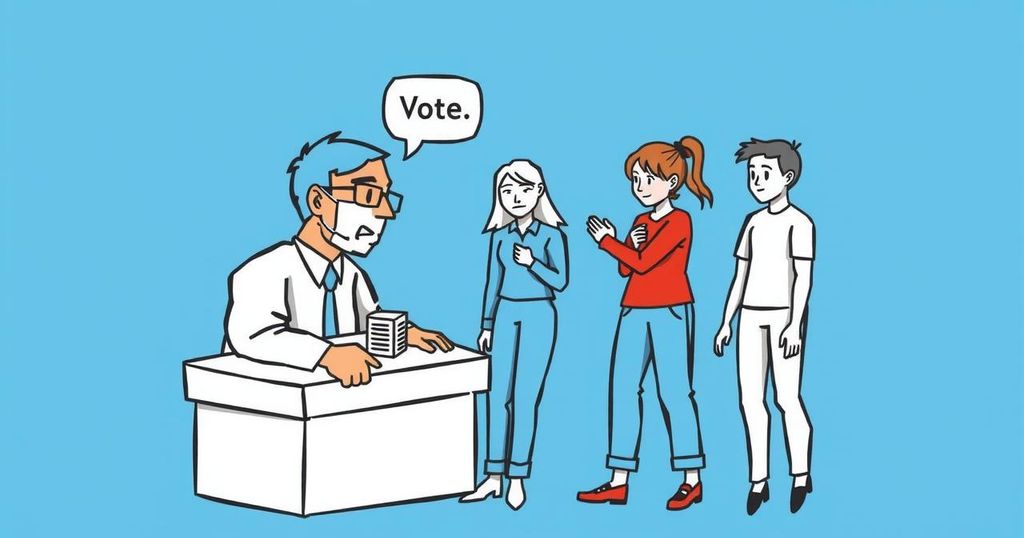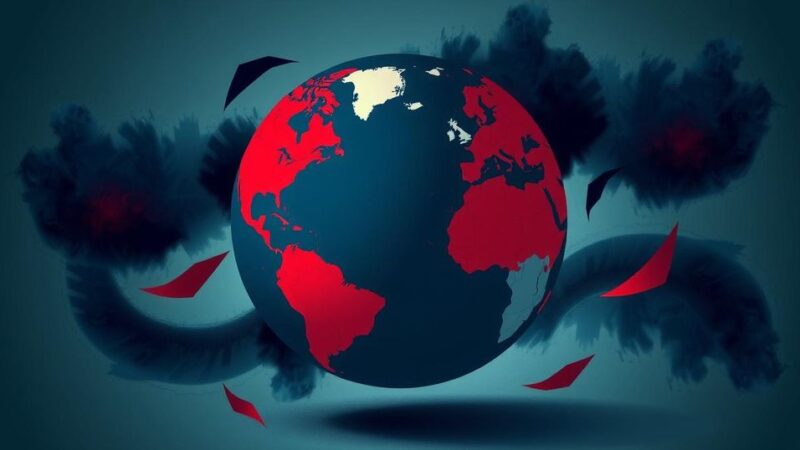Argentina became the only country to vote ‘no’ on a U.N. resolution against gender violence, a striking move under President Javier Milei. This decision has drawn widespread criticism and highlighted the growing rift between Milei’s administration and traditional progressive policies. Amidst mounting political tensions, this vote signals a significant shift in Argentina’s foreign policy towards a more conservative alignment.
In a surprising turn of events, Argentina became the sole nation to vote against a United Nations resolution condemning violence against women and girls on Thursday. This decision, made under the leadership of President Javier Milei, marked a significant departure from Argentina’s historically progressive stance. The resolution, which was endorsed by nations typically known for their controversial human rights records, drew immediate criticism from various political quarters within Argentina, highlighting the growing tensions surrounding Milei’s foreign policy shifts that lean towards right-wing ideologies. The radical move came shortly after Milei’s abrupt withdrawal of Argentine negotiators from the U.N. climate conference, indicating a broader trend of aligning Argentine policies with those of the United States and Israel. This approach raises concerns regarding Argentina’s position in global discussions on critical issues, including gender equality and climate change awareness. Despite Milei’s promises to address domestic economic crises, his administration’s cultural battles invite scrutiny as they threaten to erode long-established social gains in the country. As tensions mounted, notable figures from Argentina’s centrist political parties criticized the administration’s actions, with statements branding the U.N. vote as a disgrace and indicative of Argentina’s growing isolation on the world stage. Within the administration, varying opinions have emerged, with some officials defending the decision on the basis that legal frameworks alone would not resolve the issue of gender violence. The political discord reflects deeper societal divisions as the Peronist movement, historically a champion of social rights, expresses outrage over potential reversals of policies promoting women’s rights and addressing climate concerns. Milei’s administration has faced backlash for his radical stances on social issues, including his vehement opposition to abortion, which he refers to as “murder,” and his dismissal of climate change as a “socialist lie.” These assertions have led to significant resignations within Argentina’s diplomatic ranks, as veteran diplomats disagree with the government’s shift away from collaborative international frameworks. As demonstrative of this fracturing, tensions heated further with the recent dismissal of Foreign Minister Diana Mondino following a U.N. vote favoring the end of the U.S. embargo against Cuba. While Milei seeks to portray himself as a defender of individual liberties, critics argue that these actions engender isolation and contradict the principles of freedom and equality. The upcoming meeting between Milei and prominent figures such as Donald Trump and Elon Musk suggests an ongoing alignment with radical right-wing principles that may further polarize Argentina’s international relations. The discourse surrounding Milei’s presidency ultimately paints a picture of a nation caught between radical reformation and the preservation of its historic social achievements.
Argentina has long been seen as a leader in progressive social policy in Latin America, particularly in terms of women’s rights and anti-discrimination measures. The recent vote against the U.N. resolution highlights a dramatic shift under President Javier Milei, whose administration has adopted positions that align more closely with more conservative global actors. This marks a stark contrast to the previous government, which had supported various initiatives aimed at promoting gender equality and combating gender violence.
In summary, Argentina’s decision to vote against a U.N. resolution condemning violence against women serves as a poignant indicator of the significant foreign policy shifts under President Javier Milei. While seeking to navigate economic reforms, Milei’s administration faces increasing domestic and international criticism over its alignment with ultra-right ideologies, undermining decades of progress on social issues. The unfolding situation raises critical questions about the future direction of Argentina’s political landscape and its role in the global community.
Original Source: www.clickorlando.com






